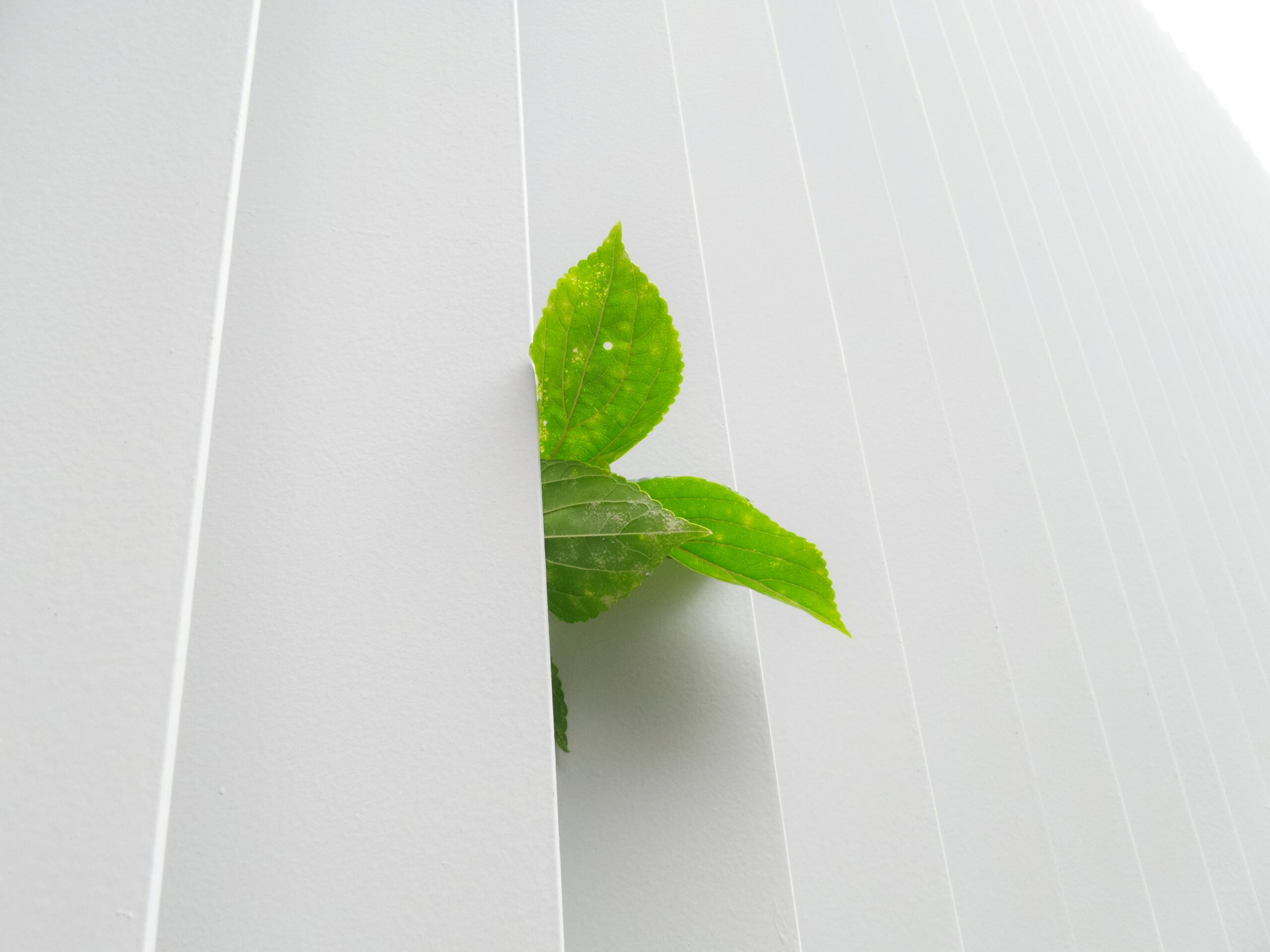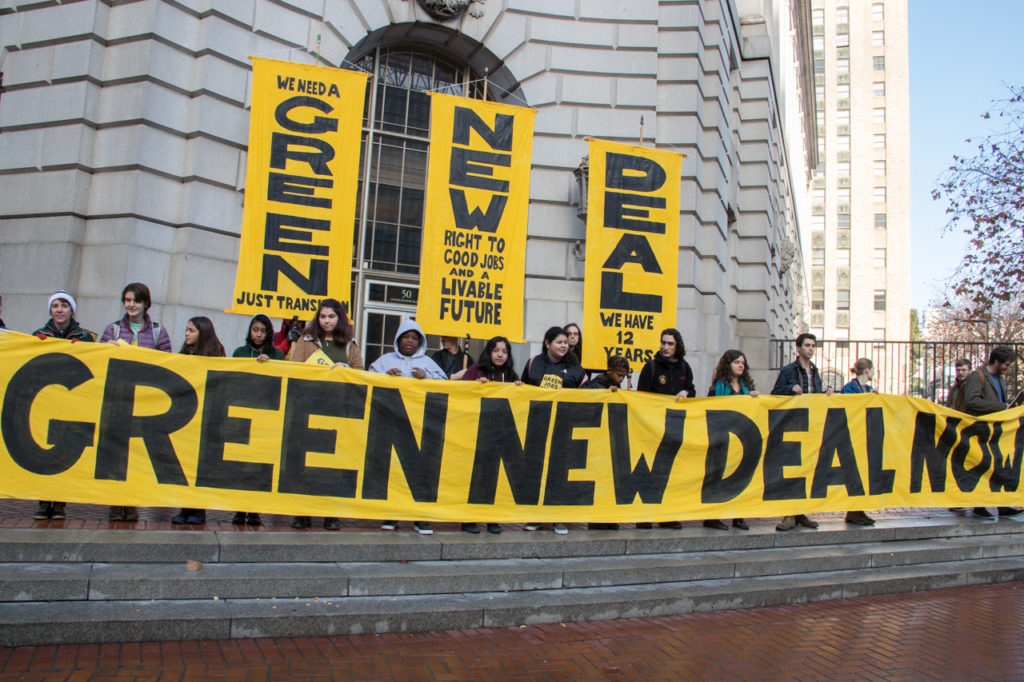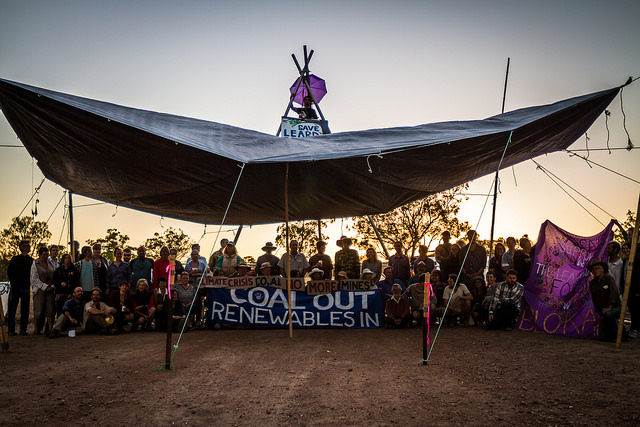On March 15th 2019 a global climate strike organized by Fridays for Future took place in over 100 countries around the world, mobilizing over 1 million students to the streets. We asked 3 people from Vienna involved in different streams of the Austrian climate justice movement to share their perspectives on the event.

 What brings you to the climate strike?
E + K: We are here today to protest for the climate!
A: I want to do my part to protect the environment. Also against pollution, against pesticides. So that something changes in politics.
Have you participated in past climate strikes?
E: No, but today I am here. Because I think there has to be a change!
K: It's my first climate strike today. Honestly, I have not been so interested in the climate so far. But lately I get informed and researched about it. And we also do more at school.
So do you have the feeling that the climate strikes have given an impetus that the topic is discussed more broadly?
A: Yes, with so many people participating in these strikes, it happens automatically, and I think this alone already makes a difference.
What, in your opinion, would be a satisfactory result of the protests?
K: In any case, for Austria you should definitely redo the "mission 2030" (the so-called Energy and Climate Strategy of the Federal Government, comment of the author.) (Link: https://mission2030.info/). Because building just a few cycle paths does not change that much now. And I also hope that Europe wakes up in this, does more, and sees climate change as a priority.
E: I totally agree with that. And in addition, this must go hand in hand with plastic reduction!
A: And we should stop mass production.
Mass production? Do you mean the excessive amount of goods that are produced?
A: Yes, for clothes, for example, or plastic bags, packaging.
Well that suits the next point. Have you ever heard of the degrowth movement?
E + K + A: No, we haven't.
In a nutshell, it's a new way of thinking about the economy. Away from the mantra "growth and profits at any price" to a needs-oriented economy: What do people in this region, and globally, need to lead a good life? How can we use resources sustainably? In your opinion, is this compatible with the Klimastreik movement? Can you support that?
K: I think if you want to continue to do business in the future, you have to make it more sustainable. Because it just ends someday. Even if you're sooo rich. And you'd better think about it now, not just sometime in five years, when it's already too late.
What's your wish to people who are critical of this strike? (á la: "stay in school, follow the rules")
E: Quite simple: look at the facts! Scientists have been delivering them for a long time.
K: Besides, what good is learning if there is no future? This is more important to me than compulsory school attendance.
Do you have the feeling that school is preparing you sufficiently for the future?
A: No. And when you have your Matura or graduation, you ask yourself: what am I doing now? Good, I earn my money. But how do I manage my household, how do I make the taxes? That would interest me, for example.
E: I think you have to do a lot for yourself. Although the school's job is actually to prepare you for the future.
Thank you for your time and the conversation!
What brings you to the climate strike?
E + K: We are here today to protest for the climate!
A: I want to do my part to protect the environment. Also against pollution, against pesticides. So that something changes in politics.
Have you participated in past climate strikes?
E: No, but today I am here. Because I think there has to be a change!
K: It's my first climate strike today. Honestly, I have not been so interested in the climate so far. But lately I get informed and researched about it. And we also do more at school.
So do you have the feeling that the climate strikes have given an impetus that the topic is discussed more broadly?
A: Yes, with so many people participating in these strikes, it happens automatically, and I think this alone already makes a difference.
What, in your opinion, would be a satisfactory result of the protests?
K: In any case, for Austria you should definitely redo the "mission 2030" (the so-called Energy and Climate Strategy of the Federal Government, comment of the author.) (Link: https://mission2030.info/). Because building just a few cycle paths does not change that much now. And I also hope that Europe wakes up in this, does more, and sees climate change as a priority.
E: I totally agree with that. And in addition, this must go hand in hand with plastic reduction!
A: And we should stop mass production.
Mass production? Do you mean the excessive amount of goods that are produced?
A: Yes, for clothes, for example, or plastic bags, packaging.
Well that suits the next point. Have you ever heard of the degrowth movement?
E + K + A: No, we haven't.
In a nutshell, it's a new way of thinking about the economy. Away from the mantra "growth and profits at any price" to a needs-oriented economy: What do people in this region, and globally, need to lead a good life? How can we use resources sustainably? In your opinion, is this compatible with the Klimastreik movement? Can you support that?
K: I think if you want to continue to do business in the future, you have to make it more sustainable. Because it just ends someday. Even if you're sooo rich. And you'd better think about it now, not just sometime in five years, when it's already too late.
What's your wish to people who are critical of this strike? (á la: "stay in school, follow the rules")
E: Quite simple: look at the facts! Scientists have been delivering them for a long time.
K: Besides, what good is learning if there is no future? This is more important to me than compulsory school attendance.
Do you have the feeling that school is preparing you sufficiently for the future?
A: No. And when you have your Matura or graduation, you ask yourself: what am I doing now? Good, I earn my money. But how do I manage my household, how do I make the taxes? That would interest me, for example.
E: I think you have to do a lot for yourself. Although the school's job is actually to prepare you for the future.
Thank you for your time and the conversation!
 Starting out in dozens of schools and universities in Vienna, students walked out of class and marched towards the Heldenplatz (“Heroes' Square”), a central square close to the parliament to protest against the deficient climate policy of the neoliberal, right-wing populist Austrian government. The date is March 15th 2019, the day of the world climate strike by Fridays For Future. Tens of thousands of enthusiastic and determined young people gathered here with a clear message in the form of humorously recasted nursery rhymes and creative protest signs. A novelty in the climate justice movement is the high amount of youth in the Fridays For Future movement, initiated by the Swedish student Greta Thunberg, who decided to skip school in August 2018 and instead protest in front of the Swedish parliament against climate change, soon inspiring many others. And thus, on this day entire classes including their teachers were seen in the crowd, singing with fervor: “We are here, we are loud, because you’re stealing our future!”
Starting out in dozens of schools and universities in Vienna, students walked out of class and marched towards the Heldenplatz (“Heroes' Square”), a central square close to the parliament to protest against the deficient climate policy of the neoliberal, right-wing populist Austrian government. The date is March 15th 2019, the day of the world climate strike by Fridays For Future. Tens of thousands of enthusiastic and determined young people gathered here with a clear message in the form of humorously recasted nursery rhymes and creative protest signs. A novelty in the climate justice movement is the high amount of youth in the Fridays For Future movement, initiated by the Swedish student Greta Thunberg, who decided to skip school in August 2018 and instead protest in front of the Swedish parliament against climate change, soon inspiring many others. And thus, on this day entire classes including their teachers were seen in the crowd, singing with fervor: “We are here, we are loud, because you’re stealing our future!”
 The Austrian Fridays For Future movement, that strikes every Friday in front of the parliament, is gaining momentum quickly and being observed by the media with interest. New support groups were founded recently, such as Parents For Future and Scientists For Future. Hitherto the Austrian climate justice movement was composed by the group System Change, not Climate Change!, that formed itself out of the Climate March organized in 2015 during the Climate Change Conference in Paris, and that has since organized a variety of demonstrations, direct actions and the Austrian climate camp, mainly acting inside the student milieu. With the emergence of new movements in the climate justice spectrum other social milieus are addressed, making the Austrian movement broader and more diverse. Besides Fridays For Future, an offshoot of the young British movement Extinction Rebellion has been founded in Austria recently.
At Heldenplatz, as well as during the march to the Ministry of Environment (degraded in the past years to the “Ministry of Sustainability and Tourism”) and later to the Ministry of Transport, many students stepped up to the microphone to explain the motives of their protest to the public. The students base their actions on climate scientific facts and the demands made by the Intergovernmental Panel on Climate Change (IPCC). Their critique is directed at the insufficient state implementation of the Paris Agreement to limit the global temperature rise to 1.5 degrees Celsius. The rhetoric of the movement entails clear objections of the political and economic order, many speeches focused on the rejection of materialistic values and emphasized the necessity of fast and effective action to tackle climate change. A protest sign with a quote by Greta Thunberg condensed the collective spirit: “Why study for a future, which may not be there?”
The Austrian Fridays For Future movement, that strikes every Friday in front of the parliament, is gaining momentum quickly and being observed by the media with interest. New support groups were founded recently, such as Parents For Future and Scientists For Future. Hitherto the Austrian climate justice movement was composed by the group System Change, not Climate Change!, that formed itself out of the Climate March organized in 2015 during the Climate Change Conference in Paris, and that has since organized a variety of demonstrations, direct actions and the Austrian climate camp, mainly acting inside the student milieu. With the emergence of new movements in the climate justice spectrum other social milieus are addressed, making the Austrian movement broader and more diverse. Besides Fridays For Future, an offshoot of the young British movement Extinction Rebellion has been founded in Austria recently.
At Heldenplatz, as well as during the march to the Ministry of Environment (degraded in the past years to the “Ministry of Sustainability and Tourism”) and later to the Ministry of Transport, many students stepped up to the microphone to explain the motives of their protest to the public. The students base their actions on climate scientific facts and the demands made by the Intergovernmental Panel on Climate Change (IPCC). Their critique is directed at the insufficient state implementation of the Paris Agreement to limit the global temperature rise to 1.5 degrees Celsius. The rhetoric of the movement entails clear objections of the political and economic order, many speeches focused on the rejection of materialistic values and emphasized the necessity of fast and effective action to tackle climate change. A protest sign with a quote by Greta Thunberg condensed the collective spirit: “Why study for a future, which may not be there?”
 Thank you to Lisa Vavra for the photos. Thank you to Lisa Vavra, Nikolai Weber and Frederik Amann for translation support. Organized, edited, and compiled by Nathan Barlow.
The German version can be found here.
Thank you to Lisa Vavra for the photos. Thank you to Lisa Vavra, Nikolai Weber and Frederik Amann for translation support. Organized, edited, and compiled by Nathan Barlow.
The German version can be found here.

In a recent op-ed published in Le Monde, French economist – and Emmanuel Macron’s economic program inspirer – Jean Pisani-Ferry argued that economic growth was necessary to fight against climate change and called for eco-productivism. The following op-ed is a reply to Pr. Pisani-Ferry that was originally published in Le Monde (in French). Recently, there have been calls for eco-productivis...

Introducing a series of proposals for a truly transformative GND The Green New Deal is on everyone’s lips and policy platforms. Liberal pundit Thomas Friedman coined the term in 2007, and Left parties in the UK called for a Green New Deal during the recession that followed the 2008 global financial crash. Last year, Congresswoman Alexandria Ocasio Cortez rebooted the idea in the United Sta...

By Tadzio Müller In the run-up to last year’s United Nations Climate Conference in Lima, Peru, a particular headline kept popping up, an attempt to once again establish a particular meme in the mind of global elites as well as wider populations: friends, the line goes, you’re right to worry about climate change, but – say the reports by, on the one hand, the International Monetary Fund, and on...